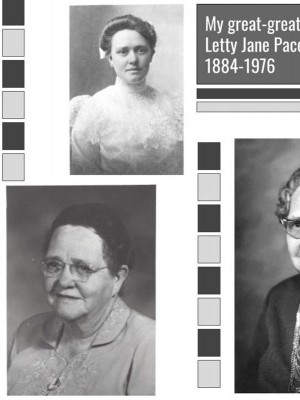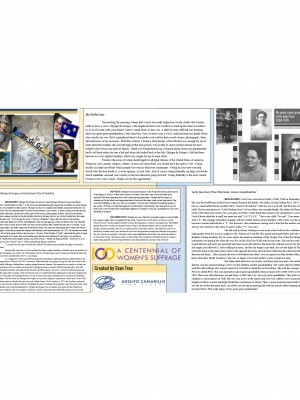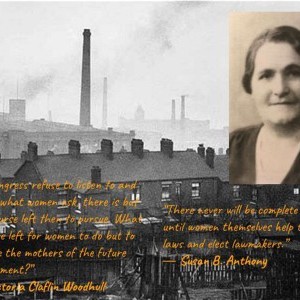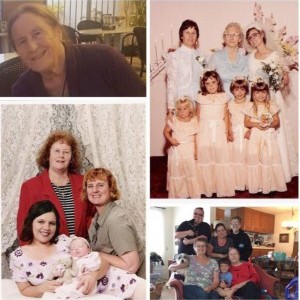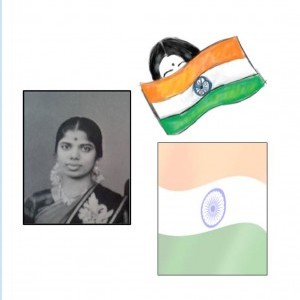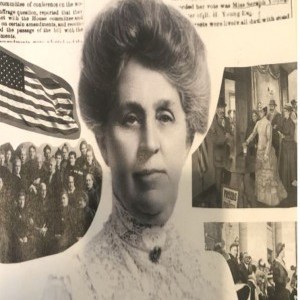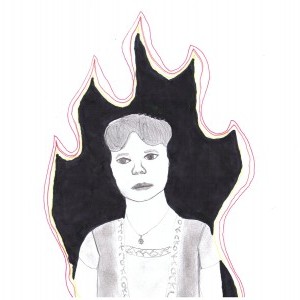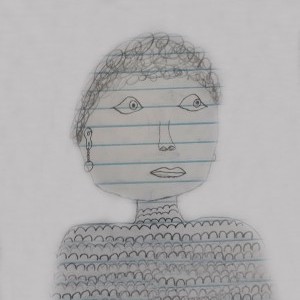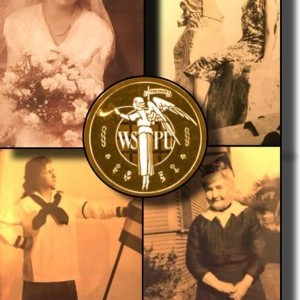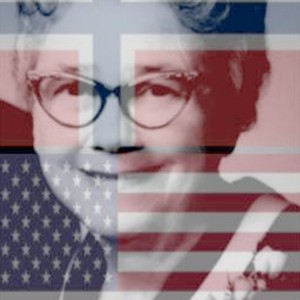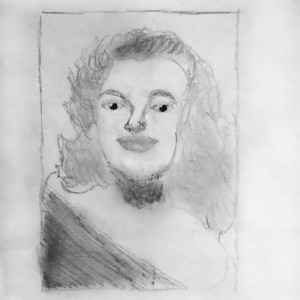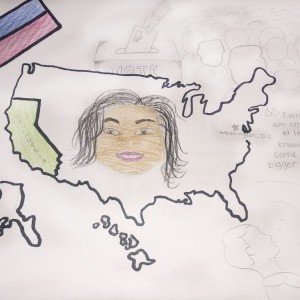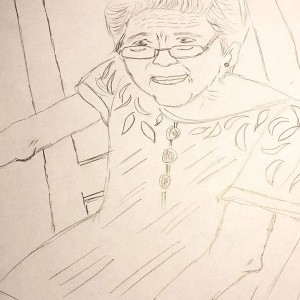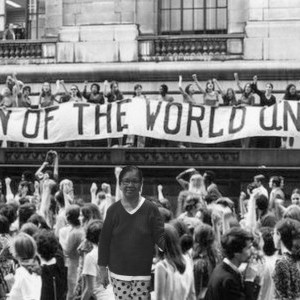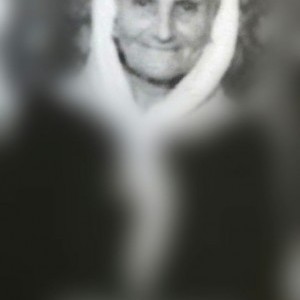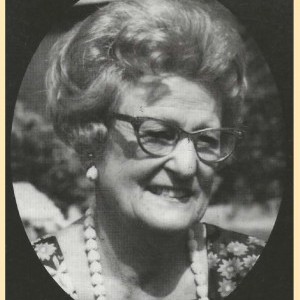Evan Tree
Adolfo Camarillo High School | Camarillo, CA | 10th
Inspirational Family Member
My Great-Great-Grandmother
Letty Pace was born in Parley’s Park, Utah on September 20, 1884. She was the twelfth born child to her eventual fourteen-kid family. Her father, George Milton Pace, (1837-1897) told her as a small infant that he wouldn’t have “much to do with her” until she was a year old, and then she would be his child. She became known as “Little Darling Sweet” by her father soon enough though. Her father had been the bishop of the Church of Latter Day Saints for twenty-two years prior to this in Parley’s Park Ward. One memory she remembered was when her Uncle Edwin asked her to spell her name she said, “L-E-T-T-I-E,” “Not so my child,” he said. “Your name is spelled with a Y.” She strongly remembers arguing with her mother (Sarah Alvira Standley, 1844-1924) over the spelling because a teacher had told her a “Y” was incorrect. She remembers causing such a fuss that her mother said to spell it anyway she wanted to. She chose to spell it with a “Y” ever since.
She did well in school, starting in a one-room school with twelve students spanning eight grades when she was six, taught by Mrs. Salmon of Coalville. She stayed and learned there until she went to Brigham Young Academy for two years where she gained a testimony of the Gospel. One of the first things she remembers was getting lost when she was five on her May Day Walk with her big sister. She and her sister went out to pick flowers and Letty got separated and came across the railroad. She knew the railroad went by her house and so she simply just followed it. After walking for hours, and the sky began to get dark, she saw the lights of Park City, Utah (her home at the time) many miles in the opposite direction. She had been following the railroad in the wrong direction for hours. She claimed she was so bewildered she didn’t even recognize her older brother Riley, and his horse when they finally found her. She was so happy to be in her mother’s arms a long hour later.
Her father died when she was twelve, and Riley died soon after. Her mother, Sarah, liked to visit Letty’s married siblings a lot to see their children and her grandchildren. The winter after her father died, she took the older siblings who weren't married to Coalville to attend the local academy. She took the younger ones to Provo to attend BYU. She soon married my great-great-grandfather Edward James Tree (1880-1963) in November of 1905. She soon after had twins, Ira and Irene, in Salt Lake City. Ira is my great-grandfather. They had seven more children in various places in Utah. She was very active in the church and was even called to serve in positions that taught her fellow women and helped build their testimonies in Christ. These various positions lasted until 1940. That was the last of the document and I can safely say she had an amazing life with her family while bringing others towards Christ. That is the legacy of my great-great-grandmother.
Historical Figure I Admire
Olympe de Gouges
An Unfortunate Time of Prejudice
Olympe de Gouges was born to Anne Olympe Mouisset Gouzes and Pierre Gouzes, who was a local butcher on May 7, 1748, but some (including herself) suspect the real father was Jean-Jacques Lefranc, which is also backed by other sources. Olympe was born to a middle class family and married when she was sixteen against her will. Her marriage didn’t last due to her husband, Louis Aubrey, a caterer, dying soon after she gave him their child. A little while later, she moved to Paris and vowed never to marry again. In Paris, she and a new friend founded a theatre company and she wrote plays about how all men, slave or not, always should have the same rights. A notable play was “L’Esclavage des noirs” (“Slavery of Blacks”) when, after the slave revolt in Saint-Domingue (modern day Haiti) in 1790-91, she publically went out and opposed violent revolution.
For that, she was ridiculed by other members of her society and was told over and over her opinion didn’t matter because she is a woman. As an advocate of human rights, she didn't oppose the French Revolution, but when she ascertained that women will still not get the same rights as men she accepted the change with bitterness and disenchantment. In 1791, she became associated with the Amis de la Verité group which is also known as “Society of the Friends of Truth” which had the goals of equal political and legal rights for women. Her most notable piece that has been attributed to her legacy was written in response to the Declaration of the Rights of Man and of the Citizen. She was famous for the Declaration of the Rights of Woman and the Female Citizen, which included her famous statement:
“A woman has the right to mount the scaffold. She must possess equally the right to mount the speaker's platform."
Shortly after, the slave revolt in modern day Haiti caught fire and eventually led to an abolition of slavery for Saint-Domingue. But at the cost of thousands of lives. Olympe disapproved of violent revolution but when her play was staged in Paris in December of 1792, a riot began. As a supporter of the constitutional monarchy and against capital punishment (death penalty), she was in strong opposition to King Loius XVI’s execution. When the king was going to be put on trial, she wrote to the National Assembly offering to defend him, causing outrage from her enemies. She argued he was guilty as a king, but not as a man, and deserved to be exiled, not executed.
Olympe became associated with the Girondin Party, which also favored a constitutional monarchy and opposed the Jacobins and Robespierre. However, as the Revolution progressed, the Jacobins (the main club in charge of the revolution) took over and Robespierre became more and more rampant. Girondins were hunted down to be sent to mock trials that eventually led to execution by guillotine for different ideals. The last straw for Olympe de Gouges was a poster calling for a plebiscite, which was a vote of the ideals of the whole nation to decide the issue of power within France. On November 3, 1793, the Jacobins sentenced her to death by execution for seditious behavior including the plea to reinstate the monarchy, only three days later when the Girondist leaders were executed themselves. Olympe de Gouges was an idealist who spoke for her beliefs in a treacherous time when radicals were against women as a whole. She paid with her head for her beliefs like many as brave as her did.
Olympe lived in the time prior to the French Revolution (also known as the Reign of Terror). At this time in history in France, new ideas were strictly frowned upon, especially the ideas regarding slaves and women having equal rights. Olympe left her legacy as standing up for her beliefs and supporting them to the grave like many others in her time period. She went down fighting, as they say. She was a member of society that contributed something unique to her country of France, an idea that supported a better future. Unfortunately, this time period was not kind to her as the Jacobin Club wanted their influence to extend to everyone, including those who were unwilling to accept it.
Olympe was one of the first recorded women to actively fight for women’s rights. She is recognized by her work: Declaration of the Rights of Woman and the Female Citizen and her negative beliefs towards discrimination, violence, and oppression. She battled against the justice system of eighteenth-century France, she pleaded against slavery and the death penalty, and most notably, the role of women in France and other nations. She called for trials to be decided by evidence and a jury, and fair divorce laws that protected women and children from penury. She also was brave enough to write plays and scripts highlighting the flaws which she believed needed to be revised in society. She died a martyr, but her ideals only continued to flourish and led to women’s rights being granted, slavery being abolished, trials being balanced, and laws that were fair.
What the Project Means to Me
Researching the amazing women that I chose has really helped me see the strides that women made to have a voice. Olympe de Gouges’s life taught me that it was worth it to stand up for what you believe in, even if it ends with your demise. Dare to stand alone, as they say. A little bit more difficult was learning about my great-great-grandmother, Letty Jane Pace Tree, as there wasn’t a lot I could get from my family about who exactly she was. But I remembered there's this pretty cool website that records stories, photographs, dates, and references of my ancestors. With this website, I found a short history of her life that was enough for me to learn about the troubles she went through at that time period. I’d just like to shout out that website for how helpful it has been to me and my family. Thank you FamilySearch.org.
I learned about stories my grandmother had to tell back when she was a kid and when she looked back at her life. Olympe de Gouges’s life had been laid out in a very explicit timeline, which was simple for me to learn about. I believe the issue of voting should apply to all legal citizens of the United States of America. Whatever, race, gender, religion, culture, or area you come from, you should have the right to vote. Voting locally can help you decide which people you want to lead your community. Voting in your state can help decide who the best leader is, in your opinion, in your state. And of course voting federally can help you decide which candidate can lead your country in the best direction going forward. Voting federally is the most crucial because every voice counts. Thank you for this opportunity!
Explore the Archive
More From This Class
Click on the thumbnails below to view each student's work.Deadline Extended
There's still time to join Women Leading the Way.
Become a part of our storytelling archive. Enroll your class today.
Join the Project

